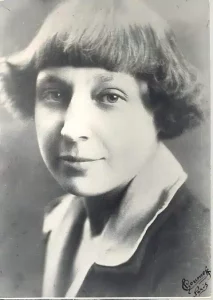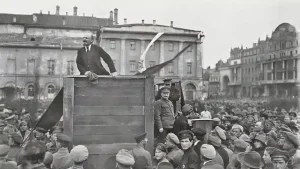At the port of Petrograd it is midnight of September 29th, 1922. The moon is high, its hump is to the west and promises salvation.
At the dock the ocean liner Oberbürgermeister Haken (The Ship of Philosophers) waits patiently for its cargo, precious to some, the most forward-looking, vile to others.
“Sergheij Bulgagov.” Calls the sailor reading from a list. “Present,” replies the man.

The long list continues, a hundred and sixty men and women occupy their cabins, and the Oberbürgermeister Haken casts off his moorings to begin his voyage to Szczecin, now Poland. Much of the Russian intelighentia is “packed up” and shipped across the border. Another part will suffer the same fate by forcibly embarking on the Preussen a few months later.
Thus begins the deportation of Russian intellectuals by Lenin who, in August 1922, announced from the pages of Pravda, “The expulsion of counter-revolutionary elements and the bourgeois intelligentsia is the first warning of Soviet power to these social elements”. The Bolsheviks having realized the importance of education in the creation of a new socialist society, initiated its reform in 1921. The reorganization of the universities caused discontent and unleashed the wave of so-called “teachers’ strikes” that were part of an already difficult historical picture that began in 1917 with the Russian Revolution.
Oberbürgermeister Haken, renamed after Glavasky The Ship of Philosophers will arrive at its destination on October 1. Men and women will land on German soil with nothing left, everything seized before departure, but finally free to think, to express ideas and to write and publish their works.
In an interview Lev Trockij stated: “We expelled those people because there was no pretext for shooting them, but there was no possibility of tolerating them either.”
His and later 
But, you know, history repeats itself and from the same Russia, mutated but certainly not changed, “ships of exiles” still set sail.
“You do not have to worry about anything. Death is not there. Death is not our thing,” Pasternak has his Zhivago say.
“Regimes decline and die, the poet, beheaded by history, remains unconquered.” Brodsky echoes him.

























